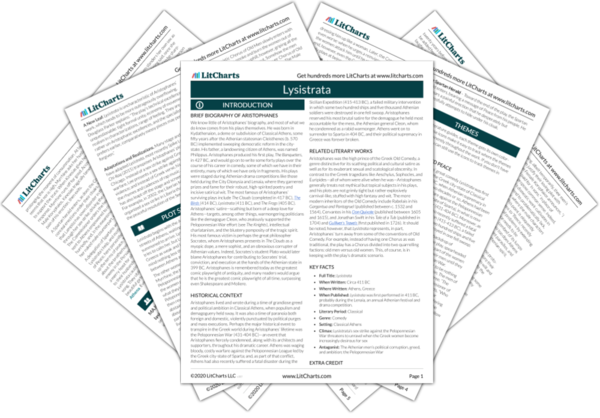The Commissioner wrongly assumes that war is men’s business only, but Lysistrata reminds him that affairs of state are everyone’s business. The women’s quality of life falls in times of war, just as the men’s does. To make it worse, there is an outrageously sexist double standard in Athens concerning marriageability and age. (The “nymphet” of the translation is also an allusion, whether intentional or not, to Nabokov’s
Lolita.)
